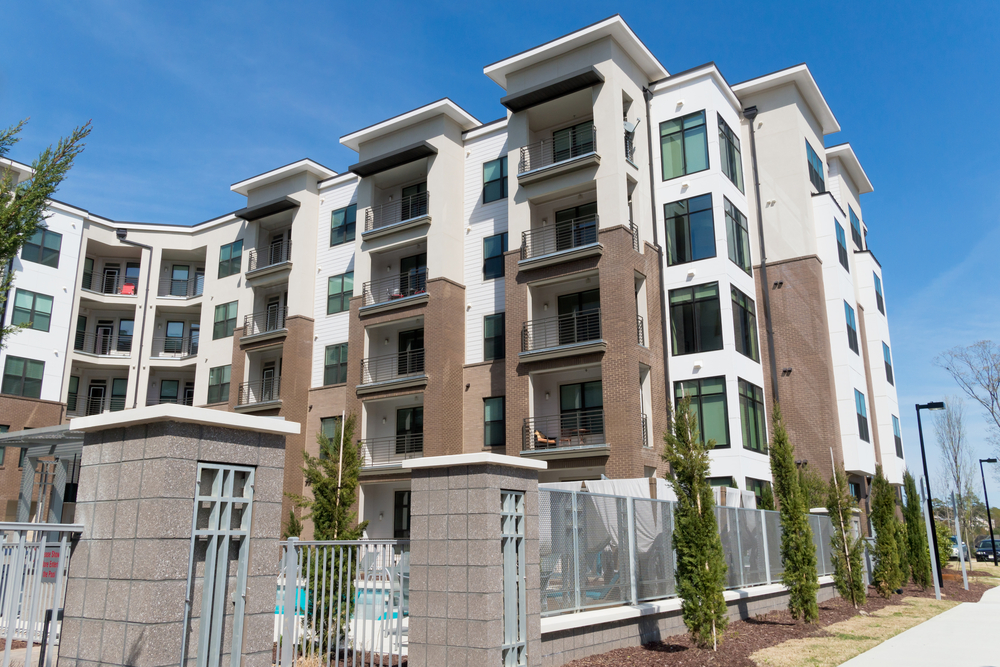 If you're injured on someone else's property, the property owner could be liable for your medical bills and other related expenses. If the property is a residential property, the homeowner is responsible; if it's a commercial property, the liability would lie with the business. But apartment complexes span both sides of this line, making the already complex issue of liability even more difficult to understand. Who is responsible if you're injured in an apartment complex? Keep reading to learn what you need to know.
If you're injured on someone else's property, the property owner could be liable for your medical bills and other related expenses. If the property is a residential property, the homeowner is responsible; if it's a commercial property, the liability would lie with the business. But apartment complexes span both sides of this line, making the already complex issue of liability even more difficult to understand. Who is responsible if you're injured in an apartment complex? Keep reading to learn what you need to know.
Understanding Your Own Liability
Before we discuss the specifics of liability in an apartment, it's important to keep in mind that your own liability is always a consideration in personal injury cases. If your own behavior played a role in your injury, the liability could be your own, and not the tenant's or property owner's. It's important to establish that your injury was a result of a poorly maintained feature or inherently dangerous condition at the complex.
If we can clearly establish that you are not liable for your injury, and that your injury was caused by some condition at the property in question, we can begin to work out the finer points of liability in an apartment complex injury--namely, whether the liability lies with the apartment tenant or the complex's owner.
Injuries Inside an Apartment
The furnishing and other interior features of an apartment are the responsibility of the tenant. They are expected to maintain the moveable furnishing inside the apartment, and to ensure the property is used in an appropriate manner. If you are injured inside someone else's apartment, and your injuries were caused by an apartment furnishing of some kind, the liability would lie with the apartment tenant.
For example, if a bookshelf tips and falls on you (and you were not doing something inherently dangerous, like trying to climb it), the tenant is liable for your injuries, because the bookshelf was not properly secured. If the injury occurs inside the apartment, but is due to non-moveable features in the apartment being unsafe--floors, walls, doors, etc.--then the property owner or landlord is responsible. The complex owner or landlord is responsible for maintaining these permanent features inside the apartment, and their failure to do so makes them responsible if you're injured.
It's important to note that the property and landlord can be two different entities. Some complexes allow individuals to purchase apartments or condos, then rent them out. If the apartment in which you are injured has an individual owner (or landlord), they would be responsible for your injuries inside the apartment. If the complex does not sell individual apartments, the complex/property owner is responsible for the apartment's interior condition and, therefore, your injuries.
Injuries on the Property
The complex owner is responsible for maintaining all communal features of the apartment complex, in addition to maintaining the apartments themselves. This includes, but is not limited to:
Should any of these exterior features be unsafe in some way, and you're injured because of it, the responsibility lies with the property owner. For example, if a stair is broken or a parking lot is icy, and you fall and injure yourself, the apartment complex's owner is responsible for your injuries.
Again, this assumes that you are not behaving in some way that would be considered inherently risky or dangerous, or using the property in some way that it's not intended to. For example, if you're skateboarding in the parking lot, fall, and break your risk, the complex owner would most likely not be held liable.
Other Potentially Liable Parties
Determining whether the complex, landlord, or tenant is liable for your injuries is just the beginning of sorting out liability in an apartment complex injury. In some cases, other parties may be responsible. For example, if there's an inherent flaw in the building's construction that caused your injury, the architect or building contractor could be liable. If the complex employs a parking lot maintenance company or groundskeeper, and they failed to perform their duties, they could be held liable for injuries that occur as a result.
In short, apartment complex injury cases are complex, and establishing liability is just the beginning. You need professional guidance and representation to ensure you receive the compensation you deserve for your injuries. Contact The Harr Law Firm today to schedule a consultation about your case